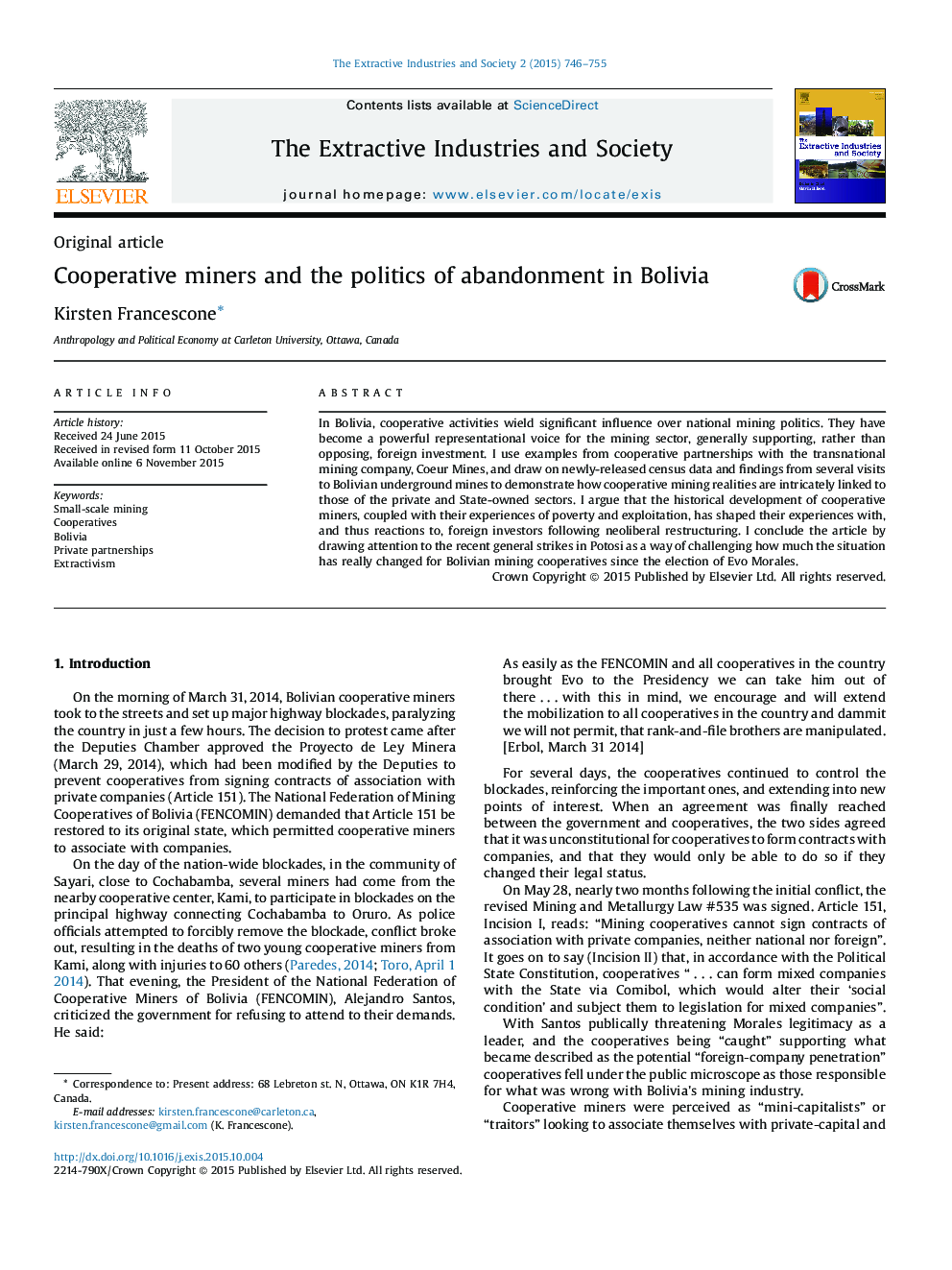| Article ID | Journal | Published Year | Pages | File Type |
|---|---|---|---|---|
| 1047552 | The Extractive Industries and Society | 2015 | 10 Pages |
•Cooperatives have co-existed with private capital for over half a century.•The label cooperative does not express the kinds of work that occurs in them.•Cooperative mining centers represent zones of state abandonment.•Transnational mining firms benefit from their relationship to the cooperative mining sector.•Cooperatives ally with transnationals in part because they have been forgotten by the State.
In Bolivia, cooperative activities wield significant influence over national mining politics. They have become a powerful representational voice for the mining sector, generally supporting, rather than opposing, foreign investment. I use examples from cooperative partnerships with the transnational mining company, Coeur Mines, and draw on newly-released census data and findings from several visits to Bolivian underground mines to demonstrate how cooperative mining realities are intricately linked to those of the private and State-owned sectors. I argue that the historical development of cooperative miners, coupled with their experiences of poverty and exploitation, has shaped their experiences with, and thus reactions to, foreign investors following neoliberal restructuring. I conclude the article by drawing attention to the recent general strikes in Potosi as a way of challenging how much the situation has really changed for Bolivian mining cooperatives since the election of Evo Morales.
